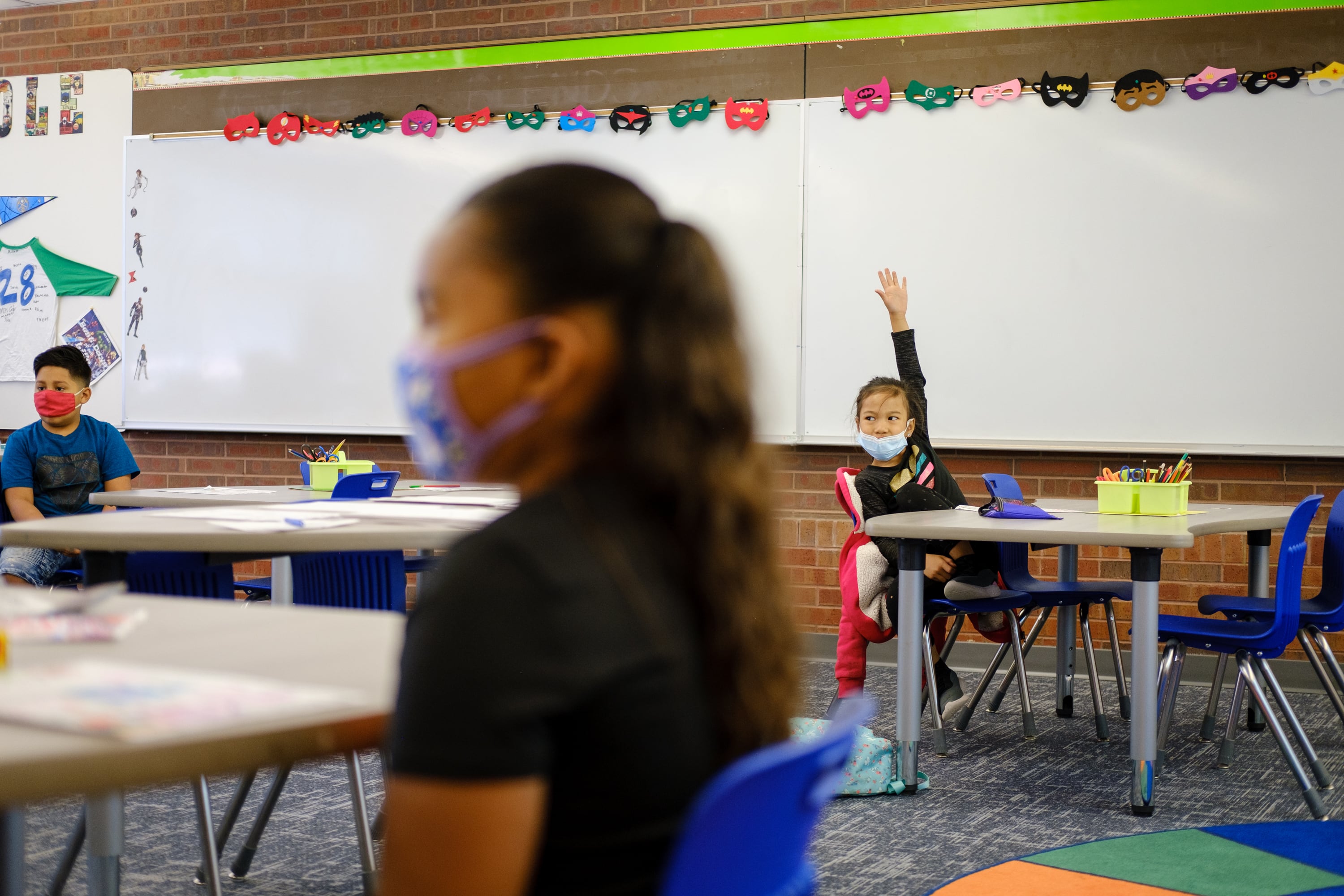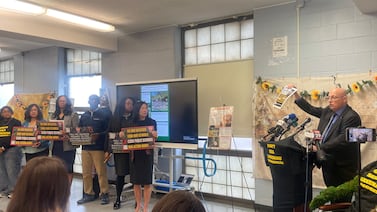The Aurora school district will pay future board members a stipend of up to $450 a month, the board decided on Tuesday.
Serving on a school board to help guide a district in creating policy, setting goals, and hiring superintendents has traditionally been a volunteer position in Colorado. Board members say that it requires a lot of time, and that the uncompensated commitment deters parents, especially those from lower income families, from serving on the board.
Aurora school board member Michael Carter, who drafted the new policy, said earlier this month that he hopes the new policy will promote greater diversity and participation on the school board.
“The majority of our students’ parents work,” Carter said. “For them to participate in this board is going to be hard. I never want a financial restriction to be a reason why an individual is not on this board.”
The Aurora district is one of the most diverse in the state with students of color representing 86% of all students, and 71% qualifying for free or reduced price lunches, a measure of poverty. Racially, the school board is diverse, but historically, members have come from select affluent neighborhoods of the district.
Current policy in Aurora allows reimbursement for “necessary expenses incurred in carrying out specific services previously authorized by the board.” Last month that included meals and Uber rides for three members who attended a school board training conference at Harvard University.
When it takes effect after the next election cycle, board members would be able to request $150 per day of board work for up to three days per month, or a maximum of $450 per month.
State law allows board members to be paid up to five days a week, far more than Aurora’s limit.
Last year, Aurora had been one of the first school boards to discuss offering pay, soon after Colorado passed a law to allow it. Some board members wanted to pass the policy before November’s election so that new board members would qualify. The law states that the board members who vote to approve pay can’t reap the benefits during the same term.
Board President Kayla Armstrong-Romero at the time delayed the vote because the board had sought public feedback and received none.
This time, there again was no public comment about the board’s proposal, and the vote was unanimous. At a previous meeting, only one member had raised questions about the proposal. Anne Keke, who said she wasn’t necessarily opposed to board pay, asked how the policy related to improving student outcomes.
Other board members responded that they hoped that getting more parents to participate would help students, and that representation of the community’s diversity would also be a good thing.
The school boards for Sheridan and Denver have already passed policies to allow board pay following the next election.
Yesenia Robles is a reporter for Chalkbeat Colorado covering K-12 school districts and multilingual education. Contact Yesenia at yrobles@chalkbeat.org.







